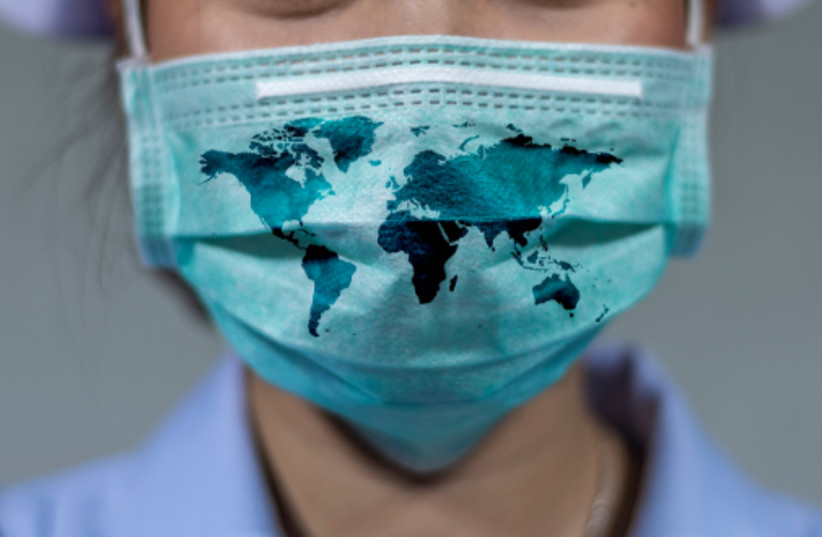University of Cambridge researchers have found that a pantyhose facemask hack, while uncomfortable, is quite effective when it comes to
protecting oneself from COVID-19.
Proper fit is a "primary factor in determining the effectiveness of face masks, but the masks available to the public often suffer from poor fit", according to the study released this past week in the peer-reviewed journal PLoS ONE.
With many opinions about the best way to wear your mask, researchers have compared several alterations, aka fit hacks, to improve the protection of poorly fit masks.
Scientists used a cutout a portion of the thigh section of pantyhose and placed it over participants' heads and masks, which allowed the pressure of the stretchy fabric to keep the mask on tight.
Results showed that using pantyhose as a seal was the best fit hack that kept the mask on tight, but people disliked wearing it.
A woman wears a protective mask during the coronavirus pandemic (credit: TEL AVIV UNIVERSITY)
The study addressed the question of whether or not simple fit hacks actually improve the fit of face masks through comparing the "quantitative fit score of several masks with and without a range of fit hacks applied".
The fit hacks studied were taken from the internet and the observing public and tested through experiments performed indoors in a clean environment.
Seven fit hacks were tested with two masks, a KN95 mask and a surgical mask.
These hacks included sealing the edges of the mask with cloth tape, using first aid gauze to fill visible gaps in the mask, using a roll of first-aid gauze to tightly bind the mask to the face (the “mummy” method), placing pantyhose over the mask to press the mask into place, creating a knot using the mask's ear loop elastic to make a larger mask fit a smaller face, and lastly using a hack proposed by Apple engineers to use rubber bands around the front to create a 'brace'.
Researchers found that two key factors determine mask effectiveness - the filtration efficiency of mask material and the fit of the mask.
"Better fitting masks offer fewer gaps between the wearer’s face and the edges of the mask, ensuring that inhaled air is actually filtered", according to researchers.
Through a comparison of scores of the masks with and without the fit hack, scientists determined the fit hacks' impact on fit.
Researchers found that pantyhose and tape hacks most effectively improved fit in KN95 masks and significantly improved fit when applied to surgical masks. The rubber band hack also showed some promise for surgical masks.
However, comfort was an issue with many of the hacks. In fact "the most discomfort was reported with the pantyhose and the rubber band hacks."
Additionally the rubber band hack reportedly created a painful pressure on the ears and the face, even hindering circulation to ears for some participants.
So while a tighter fit does provide greater protection, the comfort issue must be addressed.
Researchers recommend that new mask designs "focus on ensuring that the edges of the mask are firmly in contact with the face."
As a properly fit mask can make all the difference when it comes to protecting oneself from
COVID-19, researchers hope the results from the study will help both designers and the public to improve masks and mask fitting devices.













